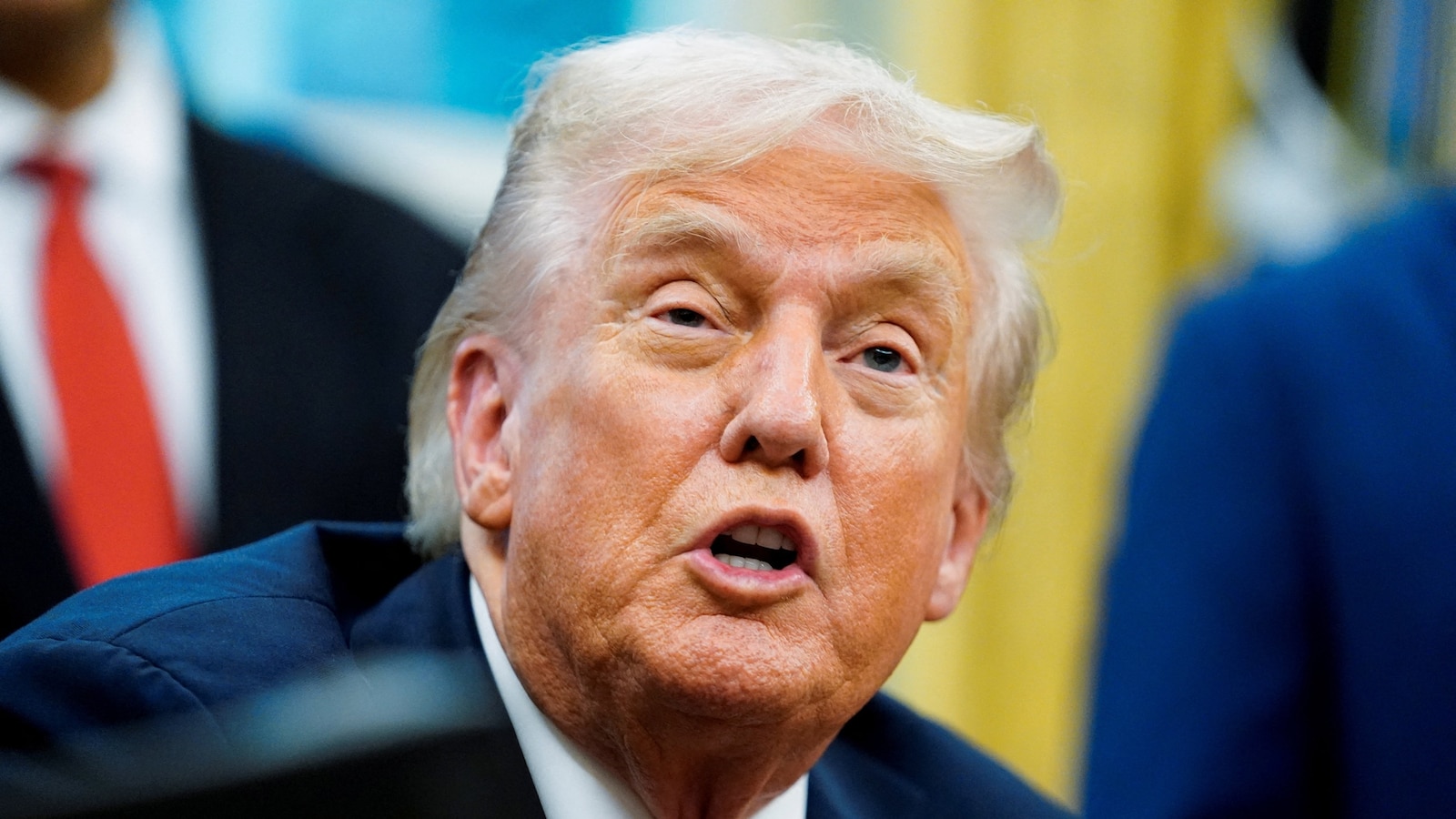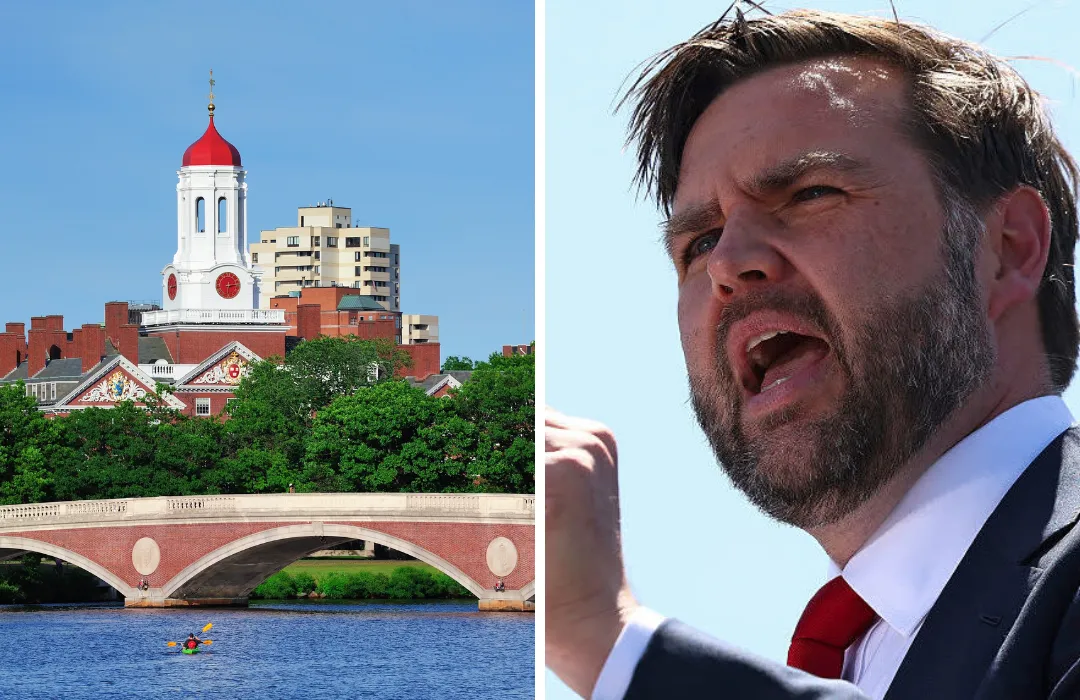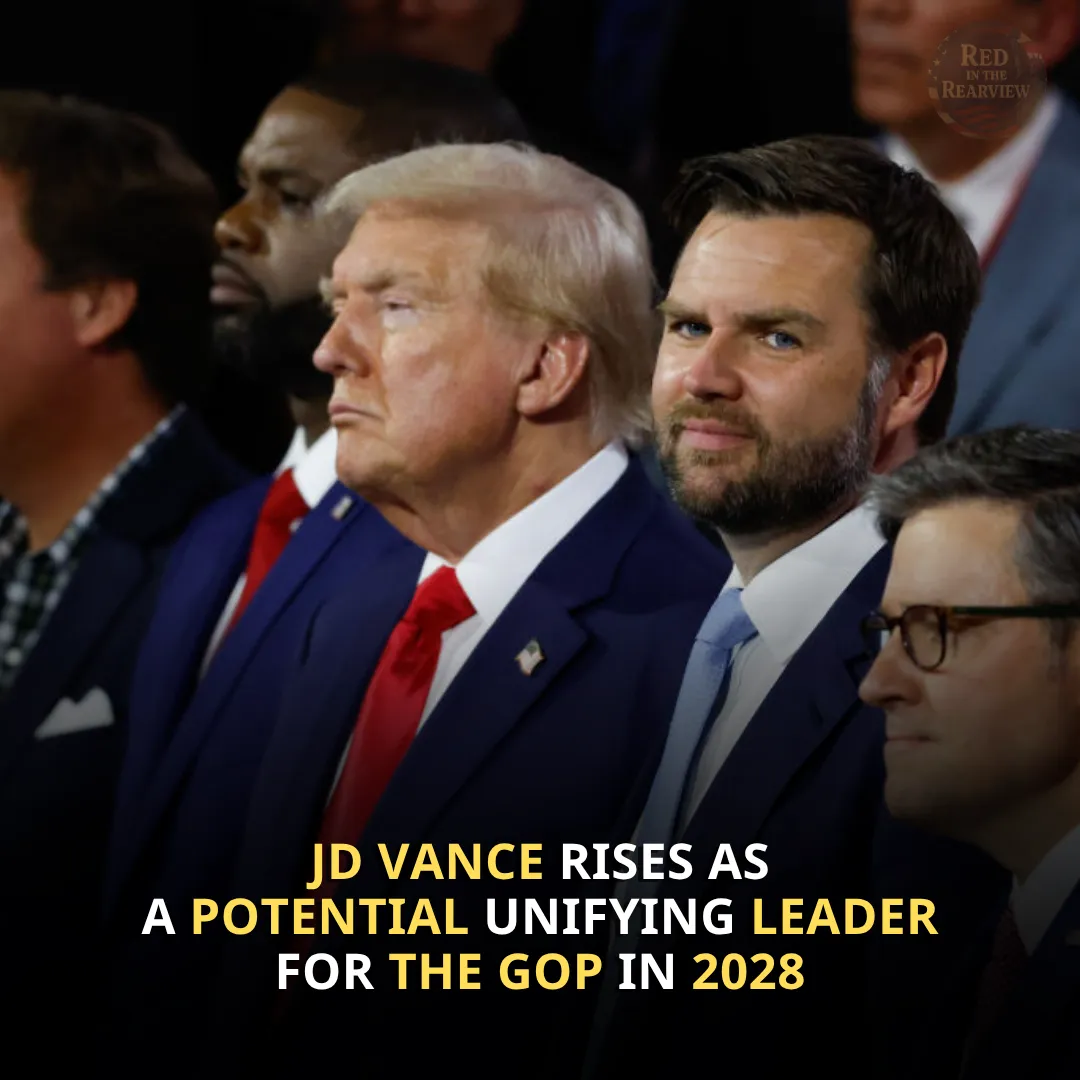
As the government shutdown continues to drag on, President Donald Trump has declared that future budget cuts will specifically target Democratic-backed programs.
Speaking in a video posted to X, the President characterized the ongoing shutdown as both damaging and transformative, promising to make “permanent cuts” that would reshape federal spending priorities and punish Democrats for engineering what he called “their own political disaster.”
In his remarks, Trump placed the blame for the shutdown squarely on Democratic lawmakers, accusing them of prioritizing partisan politics over the needs of working Americans.
“The Democratic shutdown is causing pain and suffering for hardworking Americans, including our military, our air traffic controllers, impoverished mothers, people with young children — people that have to live not the greatest of lives,” Trump said.
Despite acknowledging that the shutdown was beginning to cause disruptions, Trump appeared undeterred, suggesting that the standoff might ultimately strengthen his hand.
“The government shutdown has been, you know, pretty damaging. Not yet, because it’s early, but it gets a little bit worse as it goes along,” he said. “We will be making cuts that will be permanent, and we’re only going to cut Democrat programs, I hate to tell you.”
Trump’s comments indicate a broader political strategy — one aimed at portraying Democrats as responsible for economic pain while simultaneously advancing his long-promised agenda to reduce federal spending and bureaucracy.
Flanked by his Cabinet members, Trump signaled that the administration was preparing a list of cuts to implement immediately after the shutdown ends. “We’re only cutting Democrat programs. We’re going to start that,” he said, referencing Office of Management and Budget Director Russell Vought.

“Russell can talk to you about it if he wants to, but we’ll be cutting some very popular Democrat programs that aren’t popular with Republicans, frankly, because that’s the way it works.”
The President described the move as a form of political payback, suggesting that Democrats “wanted to do this” and therefore should face the consequences. “They wanted to do this, so we’ll give them a little taste of their own medicine,” Trump said.
Administration insiders suggest that the targeted cuts could include grants to public broadcasting networks, climate-related initiatives, and certain federal arts and education programs traditionally championed by Democrats.
Trump’s supporters have long argued that such programs are wasteful or ideologically slanted, while Democrats contend they provide critical services to underserved communities.
Trump used the same address to highlight what he called his administration’s achievements in lowering taxes and improving take-home pay for ordinary Americans.
“We’ve cut their taxes. The great big, beautiful bill — we’ve cut their taxes at levels nobody has ever seen,” he said, referring to the sweeping tax cuts implemented under his previous administration. “No tax on tips. No tax on Social Security. No tax on overtime. It’s been a great thing for a lot of people.”
The President suggested that while the shutdown was painful, the underlying economy remained strong due to his policies. “They are doing great, despite all of the damage that it’s caused,” he said.
Critics, however, have questioned whether the benefits of Trump’s tax policies are sustainable amid prolonged government closures and rising budget deficits.

Democrats argue that his economic agenda disproportionately benefits corporations and wealthy individuals while leaving working families vulnerable during crises like the current shutdown.
In typical fashion, Trump did not shy away from naming political adversaries directly. During a Cabinet meeting earlier in the day, he mocked several high-profile Democrats, including Senate Minority Leader Chuck Schumer and Representative Alexandria Ocasio-Cortez.
“The problem is, we really don’t know who the hell is leading the Democrats,” Trump said, according to reports from RealClearPolitics. “You have this AOC — I don’t know her at all. I watched her the other day: ‘If they want, they can come to my office.’ That’s not leadership.”
Trump went on to suggest that Ocasio-Cortez had effectively replaced House Minority Leader Hakeem Jeffries as the party’s de facto leader. “AOC said that Republicans could come to her office and negotiate. I didn’t know she was the leadership, but she is taking Hakeem Jeffries’ place,” Trump quipped.
The President also took a jab at Schumer, predicting that the longtime New York senator would soon retire. “Schumer is afraid she’s going to run against him,” Trump said. “And right now — I don’t think he can beat anybody. He would lose any primary. I think Schumer is going to retire, because he can’t beat anybody, his polls are so bad.”
Much of the current budget stalemate centers on healthcare funding, particularly a Democratic proposal to continue subsidizing Obamacare premiums. Republicans have balked at the plan, arguing that it would effectively extend coverage to illegal immigrants.
“They keep using health care as a cudgel,” Trump told reporters, according to CBS News. “They want to try and get everyone thinking about health care. We’re the ones that are saving health care.”
Democrats insist their proposal is aimed at protecting low-income Americans from rising insurance costs, but Republicans counter that the policy lacks reform measures and would worsen the national deficit.

The disagreement has become one of the defining issues of the shutdown, with each party accusing the other of holding federal workers hostage for political gain.
Economists warn that prolonged shutdowns can have cascading effects on the economy, particularly when essential government services are disrupted. Federal employees, contractors, and small businesses that rely on government spending are among the first to feel the impact.
Despite these risks, Trump has calculated that standing firm will strengthen his negotiating position. “This isn’t just about money,” one White House official said privately. “It’s about showing Democrats that they can’t bully the administration with shutdowns and scare tactics.”
Some analysts believe the President’s strategy could resonate with his political base, which remains wary of federal overreach and hostile to Democratic spending priorities. Others caution that prolonged gridlock could alienate moderate voters who are tired of Washington’s dysfunction.
As the standoff continues, partisan divisions are deepening. Democrats accuse Trump of using the shutdown to advance a political vendetta rather than negotiating in good faith.
“He’s playing politics with people’s livelihoods,” one Democratic aide said. “These so-called cuts aren’t about fiscal responsibility — they’re about revenge.”
Republicans, meanwhile, argue that Democrats engineered the shutdown to obstruct Trump’s agenda and score political points ahead of the next election cycle. “They think they can scare us into surrendering,” said a GOP lawmaker aligned with the President. “But the President is right — it’s time to stand up to them.”
Early polling data suggests that the American public remains divided over who bears responsibility for the shutdown. While Democrats hold a slight edge among independent voters, a growing share of respondents say both parties are equally to blame.

Trump’s approval ratings among Republican voters remain strong, suggesting that his combative approach is resonating with his base. At the same time, surveys indicate increasing frustration among federal workers and low-income households affected by the stalemate.
Analysts note that while past shutdowns have damaged both parties, Trump’s emphasis on selective budget cuts — targeting programs he labels as “Democrat” — could shift blame toward his opponents if voters perceive them as protecting partisan interests.
The Senate has rejected multiple proposals that would end the shutdown, and negotiations show little sign of progress. Still, Trump appears confident that he holds the upper hand. “They wanted to do this,” he said, “so we’ll give them a little taste of their own medicine.”
If the President follows through on his promise to implement permanent cuts, the battle over the federal budget could transform into a broader ideological war over the role of government itself. Supporters see an opportunity to finally scale back decades of bureaucratic expansion; opponents warn of deep harm to social safety nets and public services.
Either way, Trump’s remarks make clear that he views the shutdown not as a crisis to be solved, but as a political weapon to be wielded. For the Democrats he blames, the message is unmistakable: the price of confrontation could be paid in the very programs they’ve spent decades fighting to preserve.



